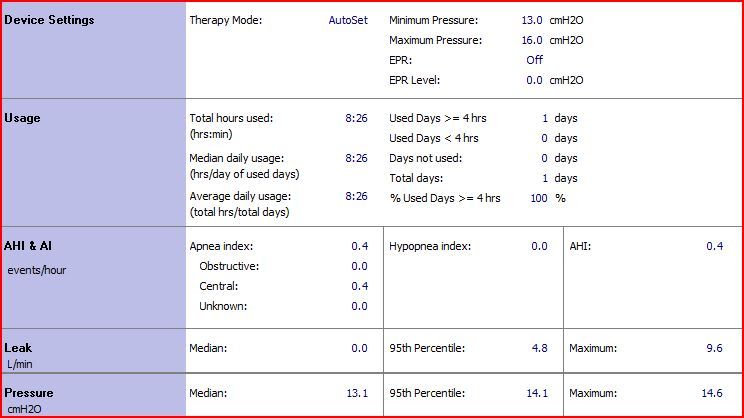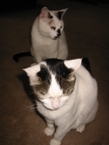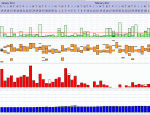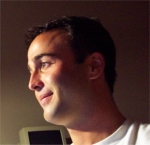As Pugsy points out, a tech with an EEG and the wave form could tell more.
The one thing that I see is that it looks to me like you've got some real flow limitations going on in those wave forms that you've posted for the time between 2:00 and 2:10. There's also evidence of that in the big overview graph. So it could be that right before your big wake up, your breathing is particularly ragged for quite a bit of time. But not ragged enough for OAs and Hs to be scored because (a) you are breathing during this whole time (so no OAs) and (b) the flow limitations gradually increase so slowly that no Hs are scored: On the S9, an H requires something like a 30% to 50% drop in airflow compared to a baseline that's based on a moving average of the last several minutes of breathing if I recall correctly. If the air flow is slowly, but surely deteriorating, it can get pretty limited without an H being scored. But if it gets limited enough, it's reasonable to assume that you will wind up arousing yourself to get the breathing back to normal.
So--how do the wave form data in this 10 minute period compare to a 10 minute period where you're pretty sure you were asleep and NOT right before or right after you woke up with the "big one"? The comparison between this period and a period where you didn't have a big wake might be illuminating.
As for what to do about that big wake? If it's been a pattern of your sleep for a very long time pre-cpap, it may be that you're waking up (and not getting back to sleep) out of habit. Yes, I know how "silly" that sounds since you don't WANT to wake up and you DO want to get back to sleep. But if you got into an unconscious habit of sleeping like this, it may be difficult to break yourself of the habit.
One thing for you to consider. Have you ever heard of "Second Sleep"? Once upon a time---before Edison invented the electric light bulb and we all started staying up till whenever and then trying to sleep straight through the night until it's wake up time, it was common for people to go to bed relatively early (after all, it was dark shortly after sunset), sleep for several hours, wake up in the middle of the night for an hour or two, and then return to sleep until wake up time near dawn. And what did folks do during that long wake up in the middle of the night? Sex, for one thing. Or prayers if you were a monk or a nun. (Matins was the daily prayer service that took place at around 2:00 AM; attendance at matins was mandatory for those living in religious communities.)
If you google
Second Sleep, here are some links that pop up:
"Sleep We Have Lost" Commentary
That's not insomnia, that's the natural sleep pattern ...
Broken Sleep May Be Natural Sleep
Of course, the big issue here is that YOUR big wake up IS bothering you---perhaps because you do have to live in the 21st century and this pattern of First Sleep, Second Sleep just doesn't work with the rest of your life. So I'll go out on a limb and make the following suggestion: You seem to be in bed (with the S9 running) from a bit after 11:00pm until a bit after 7:30am on the night you posted about. I believe this is typical for you, given what I've read elsewhere in your posts. That's a
time in bed of about 8 hours. But how long do you feel like you're actually sleeping on a given night? Six hours? Seven? It just might be the case that you don't actually need eight solid hours of uninterrupted sleep to function on a daily basis. Maybe you only need the amount of sleep you are actually getting. Let's say you're getting only about 7 hours of sleep each night. One way to try to break that habit of the big wake up might be to simply stay up until it's 12:30 and give yourself a
seven hour Time In Bed window. By delaying bedtime until 12:30, but keeping wake up time at 7:30, that would help your body consolidate its sleep cycles and may allow it to eliminate the big wake simply because it can only get the seven hours of sleep it needs by NOT falling back into the pre-industrial pattern of having a big wake in the middle of the night.
So it may be worth trying going to bed later, but getting up at the same time for the next several weeks. See if that eliminates the big wake or not.

























